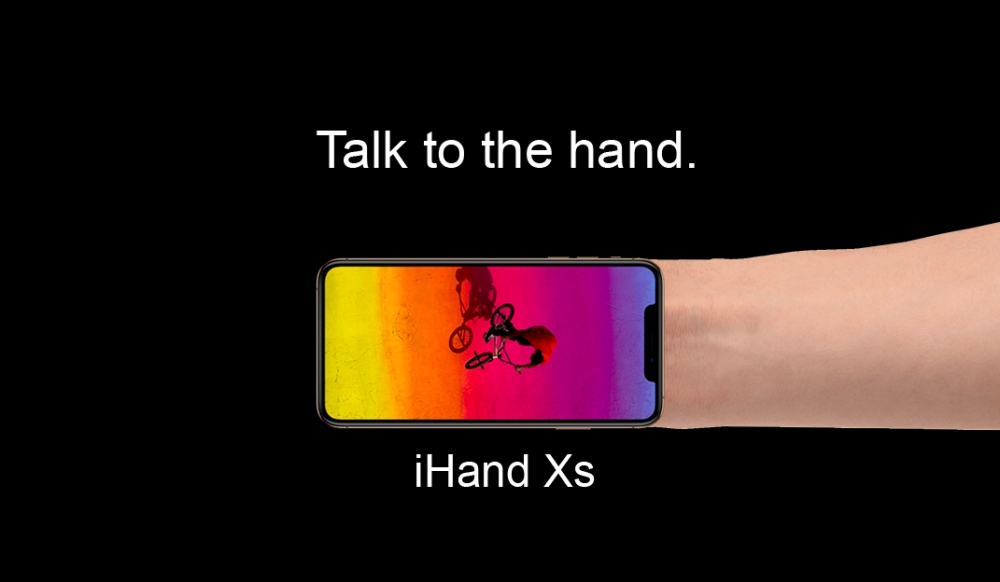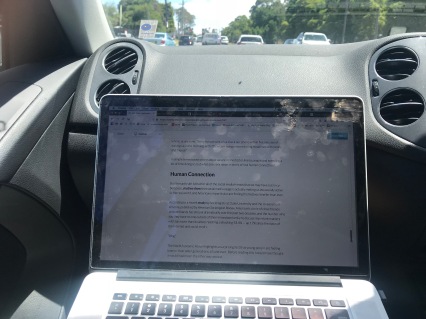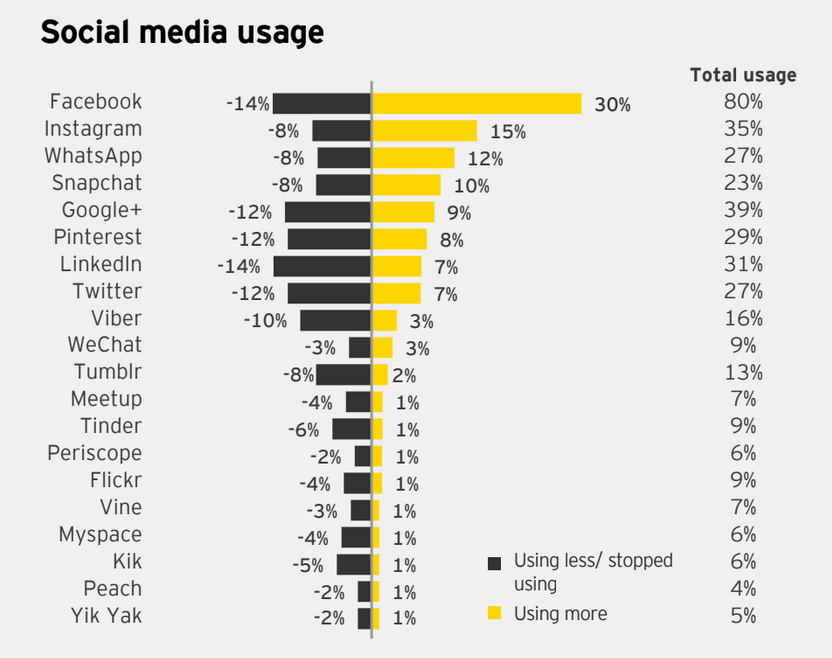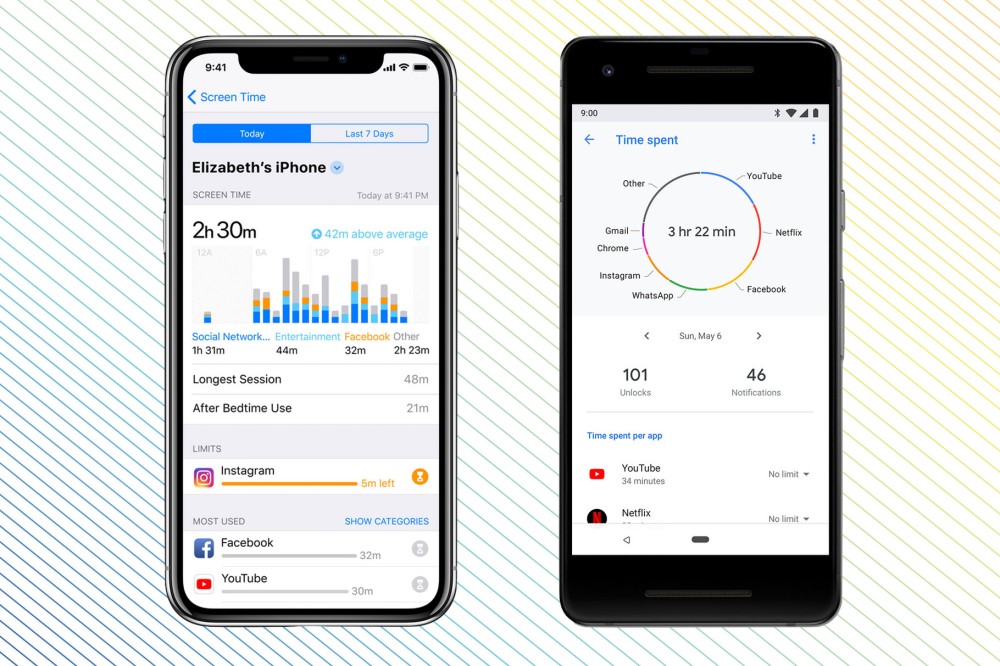The technology has become like a phantom limb, it is so much part of them – Sherry Turkle.

A. Does Technological Innovation Improve or Corrupt Morality?
As I look around my desk and my home, I am surrounded by technology. I love technology and gadgets. I love reading about new technologies and the possibilities of their use in the future.
I also find myself standing on a train on my way to work, staring at my phone screen and then glancing up to see most of the other people on the train doing the same.
Inspired by the quote by Sherry Turkle at the header of this blog, I have come up with a new product – iHand Xs. Your hand is replaced by this new mobile device. The operation is painless and you will forget that you ever had or needed a normal hand.

So why am I so negative on technology? Am I about to go “off the grid” and join a commune? No. I am pro-technology and think there is little point or way we can stop innovation and developments in technology.
My concern is regarding how we are using technology. Are we it using to greater connect with our friends, family, and community? Are we using it to be creative, to learn and for the benefit of humanity?
Have we become less productive and enslaved by technology as opposed to being freed by it?
There are over 4 billion mobile phone users in the world. The goal of the manufacturers is to sell as many of them as they can. While there is a demand for them they will be continued to be made and purchased by people.
So what am I getting at?
From my view, it’s just about being self-aware of how you are using mobile technology. Being able to step back and say, am I spending too much time on my device, or am I spending too much time on social media? Is the time that I am spending on my device productive? Is the technology driving me, or am I driving the device?
I personally spend a lot of time on my mobile reading and learning. I also work on my blog site while I am out and about as it’s easy to make changes on my mobile. I listen to podcasts and TED talks while I am walking. Being able to do all these things whenever I want to makes my day really productive. Here below is a picture of me working on this blog in a car, using my phone as a personal hotspot. Thank you technology!

My wife and I do video calls via mobile with our families who are not in the same city as us and this is important as it keeps us connected. We take this for granted that we can do it this, but innovation and technology have made this possible.
I do have concerns about the use of mobile technology with respect to young people and children. For all the good that is possible, there are people that use technology to take advantage of them. Parents of our young population need to educate their children to the dangers of mobile technology and the internet, and to be supportive and enable them to make the right decisions.
So does technological innovation improve or corrupt morality? I think it has the potential to do both, but if you are self-aware and educate yourself then I would say it has the potential to be more beneficial than detrimental.
B. Does Social Media Make Us More Connected?
In part A of this blog, I touched on the topic of the overuse of social media. In Part B, I will discuss social media in more detail and it’s effect on the connection we have with others. This is inspired by the video by Sherry Turkle, Connected but alone? (TED, 2012).
Social Media Usage

An interesting comment from the Deloitte report (Deloitte Touche Tohmatsu, 2017), states “We’re consuming everywhere, at any time. Thirty-five percent of us check our phone within five minutes of waking up in the morning, with 70 percent using phones during mealtimes with family and friends.”
In simple terms based on the above we are connected online to people and spending a lot of time doing so, but what does this mean in terms of real human connection?
Human Connection in a Digital World
In the blog post The Science Of Human Connection And Wellness In A Digitally Connected World (Rose, 2017), the following point is made: “According to a recent study by sociologists at Duke University and the University of Arizona, published by American Sociological Review, American’s circle of close friends and confidants has shrunk dramatically over the past two decades, and the number who say they have no one outside of their immediate family to discuss important matters with has more than doubled, reaching a shocking 53.4% — up 17% since the dawn of the Internet and social media.”
Figure 2 (World Economic Forum, 2018), highlights the surprising fact that young people are feeling lonelier than older generations, who are 65 years and older. Before reading this I would have thought it would have been the other way around.
 Figure 2- Younger Generations are Lonelier Than Older Generations
Figure 2- Younger Generations are Lonelier Than Older Generations
How to Keep Connected or Reconnect?
The blog Finding Balance and Connection in the Digital Age (Radneicki, 2017) has four steps to help find balance in the digital age:
1. Engage – Engage with the people you follow on social media. Comment, message, “like”, connect. Don’t just watch silently.
2. Unplug – Set limits and give ourselves the opportunity to unplug once in a while.
3. Get Face to Face – Catch up face to face.
4. Remember What Matters Most – Those who matter the most are the people we share our homes with.
While I agree with points 2-4. In regards to point 1, liking a few comments and writing some comments on social media won’t necessarily make for better human connections. If a real friendship can be developed through social media then that’s great, but I don’t consider engagement to be greatly improved by making some witty online comments.
Going back to the comment in the Doilette report, which says that 70 percent are using their phones during mealtimes with friends, this links back to points 2 and 3 above. We may take the time to meet face to face, we then use our phones while together, which defeats the purpose of meeting in person.
The blog, The Digital Age: Are We Losing Human Connection? (Jones, 2018), emphasises the need to be self-aware of our use of technology:
“Let’s be aware of our relationship with technology and model respectful and restrained usage rather than dependence, by promoting positive social skills and body language in our interactions with others, despite the temptation to check our devices.”
One other thing I would like to add to the points above is to monitor personal use. Apple has “Screen Time” and Google has “Digital Wellbeing”, Figure 3 (The Verge, 2018).
 Figure 3 – “Screen Time” and “Digital Well Being”
Figure 3 – “Screen Time” and “Digital Well Being”
Check-in to see how much time you are spending on social media on your devices. Has it increased? Do you need to reassess your personal use and do you need to make changes to your habits? I think the most important thing is to be self-aware of your usage and with these tools, it is very simple to do so.
Educate yourself before you wreck yourself.
References
Deloitte Touche Tohmatsu. (2017). Mobile Consumer Survey 2017 The Australian cut (pp. 4, 15). Deloitte Touche Tohmatsu. Retrieved from https://www2.deloitte.com/content/dam/Deloitte/au/Documents/technology-media-telecommunications/deloitte-au-tmt-mobile-consumer-survey-2017-211117.pdf
EY.com. (2017). Digital Australia: State of the Nation 2017 (p. 52). EY.com. Retrieved from https://digitalaustralia.ey.com/
Jones, L. (2018). The Digital Age: Are We Losing Human Connection? [Blog]. Retrieved from https://thriveglobal.com/stories/the-digital-age-are-we-losing-human-connection/
Radneicki, L. (2017). Finding Balance and Connection in the Digital Age [Blog]. Retrieved from https://www.upnorthparent.com/finding-balance-connection-digital-age/
Rose, M. (2017). DThe Science Of Human Connection And Wellness In A Digitally Connected World [Blog]. Retrieved from https://medium.com/thrive-global/the-science-of-human-connection-and-wellness-in-a-digitally-connected-world-611eb8c1b51c
TED. (2012). Connected, but alone? | Sherry Turkle [Video]. Retrieved from https://www.youtube.com/watch?v=t7Xr3AsBEK4&feature=youtu.be
The Verge. (2018). apple_digital.0.png [Image]. Retrieved from https://cdn.vox-cdn.com/thumbor/N2HoMHr9QBnC3hky2PnSGXk42eg=/0x0:2040×1360/920×613/filters:focal(857×517:1183×843)/cdn.vox-cdn.com/uploads/chorus_image/image/59958641/apple_digital.0.png
World Economic Forum. (2018). Younger Generations are Lonelier Than Older Generations [Image]. Retrieved from https://assets.weforum.org/editor/2a6iJXQ-XuNURxsCFtIQL5Zi2aAnsgbWZ4foauciTZY.png
